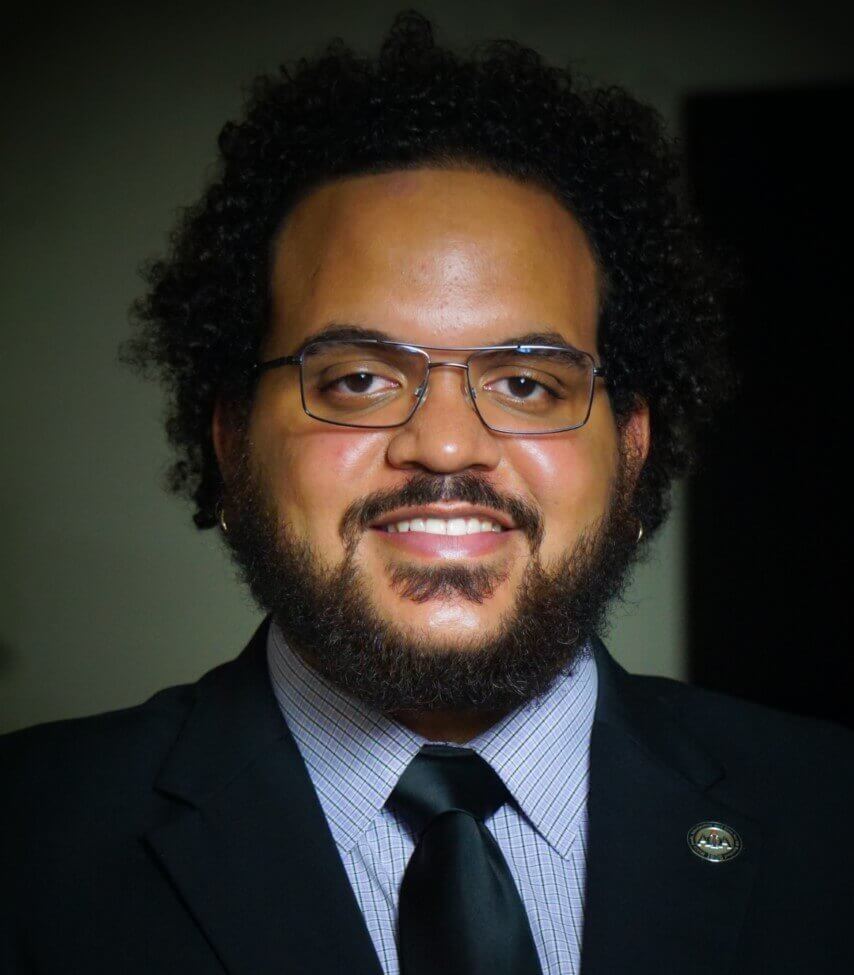As the newly hired assistant director of the Office of Multicultural Programs for the College of Agriculture, Zachary “Zac” Brown would like to continue breaking barriers and rewriting narratives that lead to exclusion of minorities from agricultural careers and education.
“You can’t separate our need for agriculture from our existence. At the same time, there are historical contexts in the U.S. that created systemic barriers preventing underrepresented minorities from accessing certain agricultural communities, whether that’s land-grant institutions claiming indigenous land, the history of slavery or the abuse of migrant worker communities,” said Brown. “A lot of what draws me to agriculture is how it connects us to each other and to the world.”
Brown attended Southern University and A&M College, a historically black 1890 land-grant institution. But he wasn’t initially drawn to agriculture. He intended to study accounting and play football. He didn’t come from an agricultural background and never participated in 4-H or FFA, so he said he had only a vague idea of what a career in agriculture actually meant.
After connecting with students around campus, including many in agricultural majors, Brown said he developed an interest in the hands-on nature of agricultural studies. He soon switched his major to animal science. Brown then went to Iowa State University to pursue a master’s degree in agricultural education. It was in this program, he explained, where he began to feel a pull to work towards diversity and inclusion within land-grant institutions.

Currently, Brown is a doctoral student in Purdue’s College of Agriculture’s Department of Agricultural Sciences Education and Communication, and he intends to complete his degree while fulfilling his role with OMP. He also serves as the national graduate student president for Minorities in Agriculture, Natural Resources and Related Sciences (MANRRS) and as a program coordinator for Mentoring@Purdue Summer Scholars Program (M@P-SSP).
“The College of Agriculture has benefitted from Zac’s insights and contributions as a graduate student leader. I am excited to welcome him to the OMP team to make an impact in the area of underrepresented minority student recruitment and retention,” said Pamala Morris, assistant dean of multicultural programs and a professor in agricultural sciences education and communication.
“Zac’s commitment to diversity, equity, and inclusion—but more importantly, to students is inspiring,” Levon Esters, ASEC professor and Zac’s advisor, said.
“I have been very fortunate in my experiences at Purdue and other institutions and I feel grateful for the opportunity to help others have a similar experience,” Brown reflected. “It’s hard to call this kind of administrative work my passion because it’s tough work, but I see it as necessary. Someone has to take on that emotional, mental and physical labor to change a system that isn’t designed for you to be part of.”
As assistant director, Brown will work to increase the visibility of the college across underrepresented communities. Enrolling larger numbers of minority students is a major component of his role. But he explains that success will be contingent on making sure every student from an underrepresented background has a quality experience in the college.
“There is no perfect experience for any one student, but my ultimate goal is that whenever a student from a minority background is a member of this college they know they can participate in any capacity they want,” he explained. “They can go to our student organizations, go to any department, talk with any faculty or staff member, and feel they are supported and welcomed. I don’t want them to feel like their only option is to come to this office or rely on programming from OMP. Instead, the work we do in this office should be carried out within each of the academic departments.”


